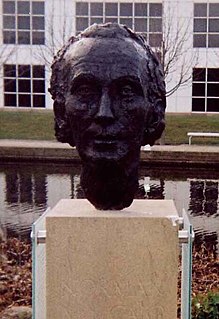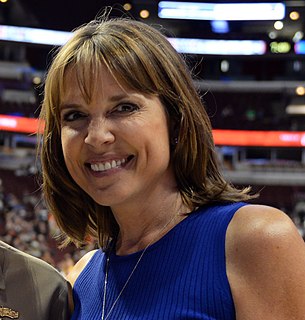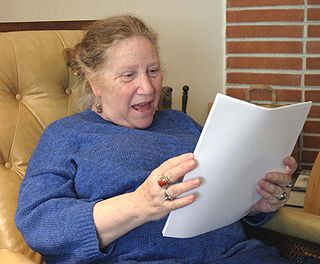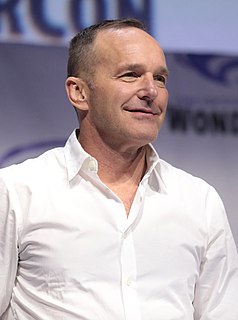A Quote by Norman MacCaig
When I talk of hearing a poet's voice speaking, I always think of it as in the presence of the man.
Related Quotes
Geoffrey's personal style was very different from mine. He has a lovely speaking voice, a quiet speaking voice. But at Cabinet we always reported on foreign affairs - we always had this quiet voice. It was so quiet sometimes I had to say 'speak up'. And he gave it in a way which wasn't exactly scintillating. And you know, foreign affairs are interesting. They affect everything that happened to our own way of life, and they are exciting. And so we just diverged.
I know that in a poem, even when the speaker is speaking from the poet's experience, there's always something that's borrowed, some authority that sits outside of the poet that the poem has claimed. There's a dramatic pitch that makes the speaker capable of saying something more courageous or stranger or simply other than what the poet would be able to say.
I am starting to get tired of relying on words. They are full of meaning, yes, but they lack sensation. Writing to her is not the same as seeing her face as she listens. hearing back from her is not the same as hearing her voice. I have always been grateful for technology, but now it feels as if there's a little hitch of separation woven into any digital interaction. I want to be there, and this scares me. All my usual disconnected comforts are bieng taken away, now that I see the greater comfort of presence.
I think the poet is the last person who is still speaking the truth when no one else dares to. I think the poet is the first person to begin the shaping and visioning of the new forms and the new consciousness when no one else has begun to sense it; I think these are two of the most essential human functions.
When Marvel put together Ultimate Spider-Man and someone came up with the idea of having Principal Coulson, they said, "Do you want to do the voice?" I thought, "I have to do the voice!" Because I have a daughter and we watch some cartoons, I couldn't bear the idea of tuning in and hearing somebody else's voice.
There are no words and there is no singing, but the music has a voice. It is an old voice and a deep voice, like the stump of a sweet cigar or a shoe with a hole. It is a voice that has lived and lives, with sorrow and shame, ecstasy and bliss, joy and pain, redemption and damnation. It is a voice with love and without love. I like the voice, and though I can't talk to it, I like the way it talks to me. It says it is all the same, Young Man. Take it and let it be.
All great questions must be raised by great voices, and the greatest voice is the voice of the people - speaking out - in prose, or painting or poetry or music; speaking out - in homes and halls, streets and farms, courts and cafes - let that voice speak and the stillness you hear will be the gratitude of mankind.







































